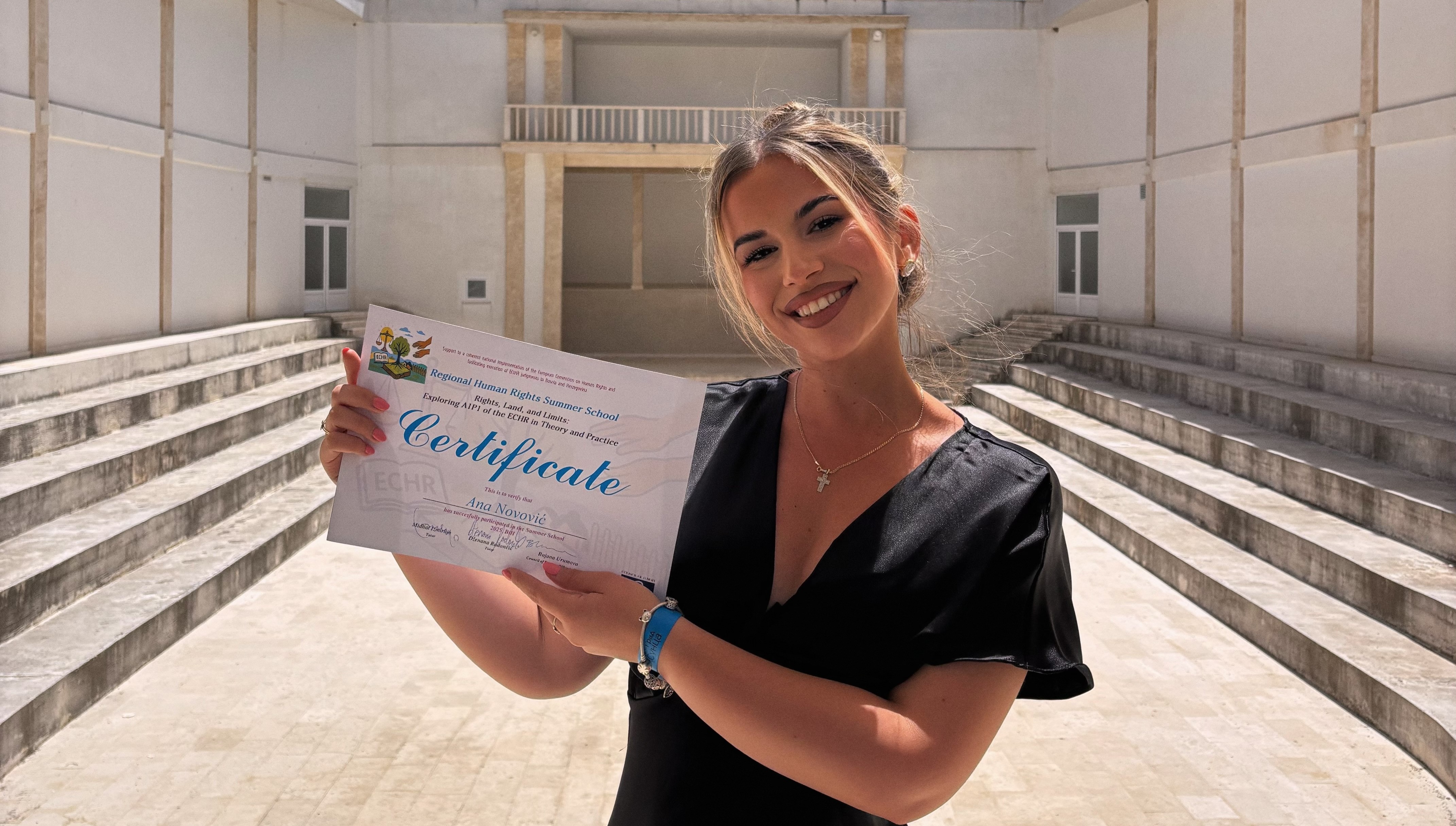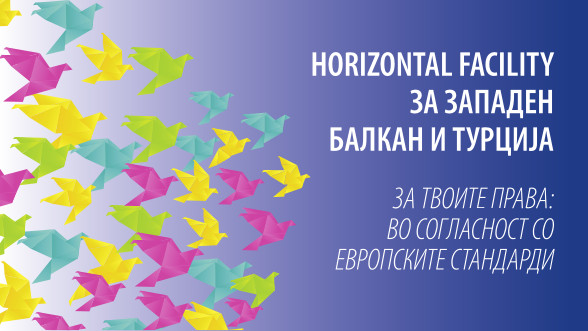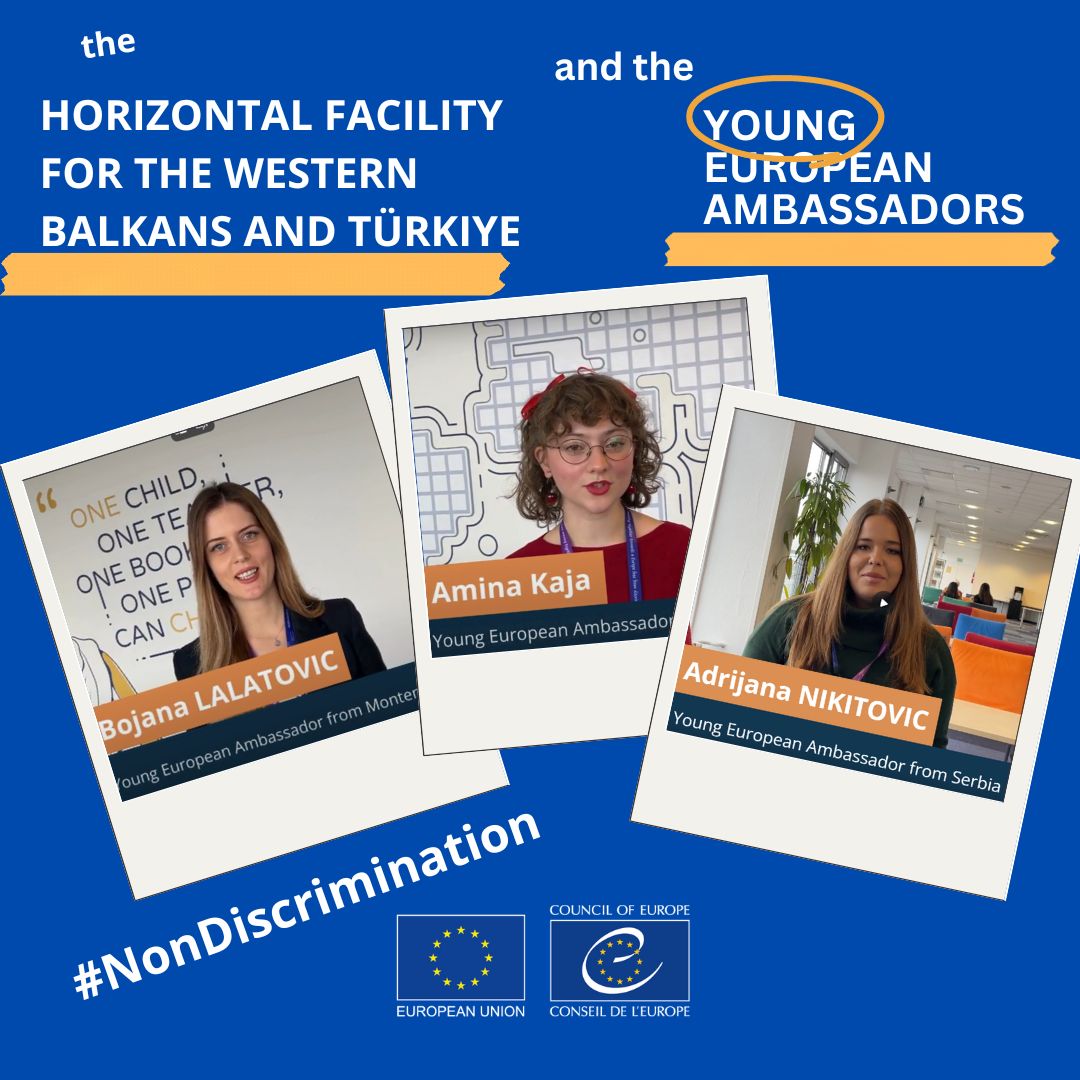For many law students, understanding human rights begins in a classroom. But for a young participant from Montenegro, Ana Novović, the Regional School of Human Rights in Trebinje in July offered something much deeper: a chance to connect with others who, despite different backgrounds, share the same sense of justice and responsibility.
“My experience in Trebinje was truly inspiring and valuable,” Ana said, recalling her days at the school. “It was a great opportunity to broaden my knowledge, especially about the right to the peaceful enjoyment of property.” Motivated by her previous experiences at summer schools and seminars, she was drawn by the school’s interactive format, and with a little encouragement from her professors, she applied.
What she found exceeded her expectations. “The knowledge I gained, particularly around Article 1 of Protocol No. 1 of the European Convention, will be incredibly useful in my future career,” she explained. Already working at a law office, she sees property rights come up in practice frequently. “Understanding how the European Convention protects these rights will absolutely shape how I approach real-life cases. It gave me a broader sense of what it means to protect a client’s rights,” she added.
Beyond lectures, what made the biggest impact were the practical exercises, especially the trial simulations. “Those mock trials were a fantastic addition to the theoretical part,” Ana said. Divided into two groups, students prepared arguments and took on roles to present before a ‘court’. “That was when I really saw how complex human rights issues are, especially when it comes to environmental rights. Although we all had the same case, our approaches differed, which further showed how much room there is for argumentation.”
Still, it wasn’t just legal knowledge that made the experience unforgettable. It was the people. “Networking with students from Albania, Bosnia and Herzegovina, North Macedonia, Serbia, and Kosovo* was one of the most enriching parts,” she shared. “It was really useful to exchange views and see how human rights are approached in different settings. Although there are some differences in legislation or practice, I was surprised by how much we actually share the same views on many current topics. I’m glad about that, because it shows that young people in the region think similarly and share the same values when it comes to justice, freedoms, and the responsibilities of institutions.”
To those considering applying for the next edition, her advice is clear: go for it. “Expect an intense, but very exciting programme where you will learn a lot, not just from the lectures, but from group work, discussions, and the practical exercises. Be open, speak up, and take part in everything. And definitely take time to connect with others, that’s what will make your experience even more meaningful.”
The Regional School of Human Rights was organised as part of the Council of Europe project Support to a coherent national implementation of the European Convention on Human Rights and facilitating the execution of judgements of the European Court of Human Rights in Bosnia and Herzegovina, funded under the Action plan for Bosnia and Herzegovina for the period 2022-2025, in cooperation with actions implemented by the Council of Europe under the joint programme of the European Union and the Council of Europe Horizontal Facility for Western Balkans and Türkiye, co-financed by the European Union and the Council of Europe: Towards a Consolidated and More Efficient Free Legal Aid (FLA) System in North Macedonia, Strengthening human rights protection in Serbia, Strengthening accountability of the judicial system and enhancing protection of victims' rights in Montenegro, Improving the protection of the right to property and facilitating execution of ECtHR judgments in Albania (D-REX III), as well as the Council of Europe regional project Human Rights and Sustainable Environment in South-East Europe and the project in Kosovo Support to the Constitutional Court in Applying and Disseminating European Human Rights Standards – Phase II.
* This designation is without prejudice to positions on status, and is in line with UNSCR 1244 and the ICJ opinion on the Kosovo Declaration of Independence.



